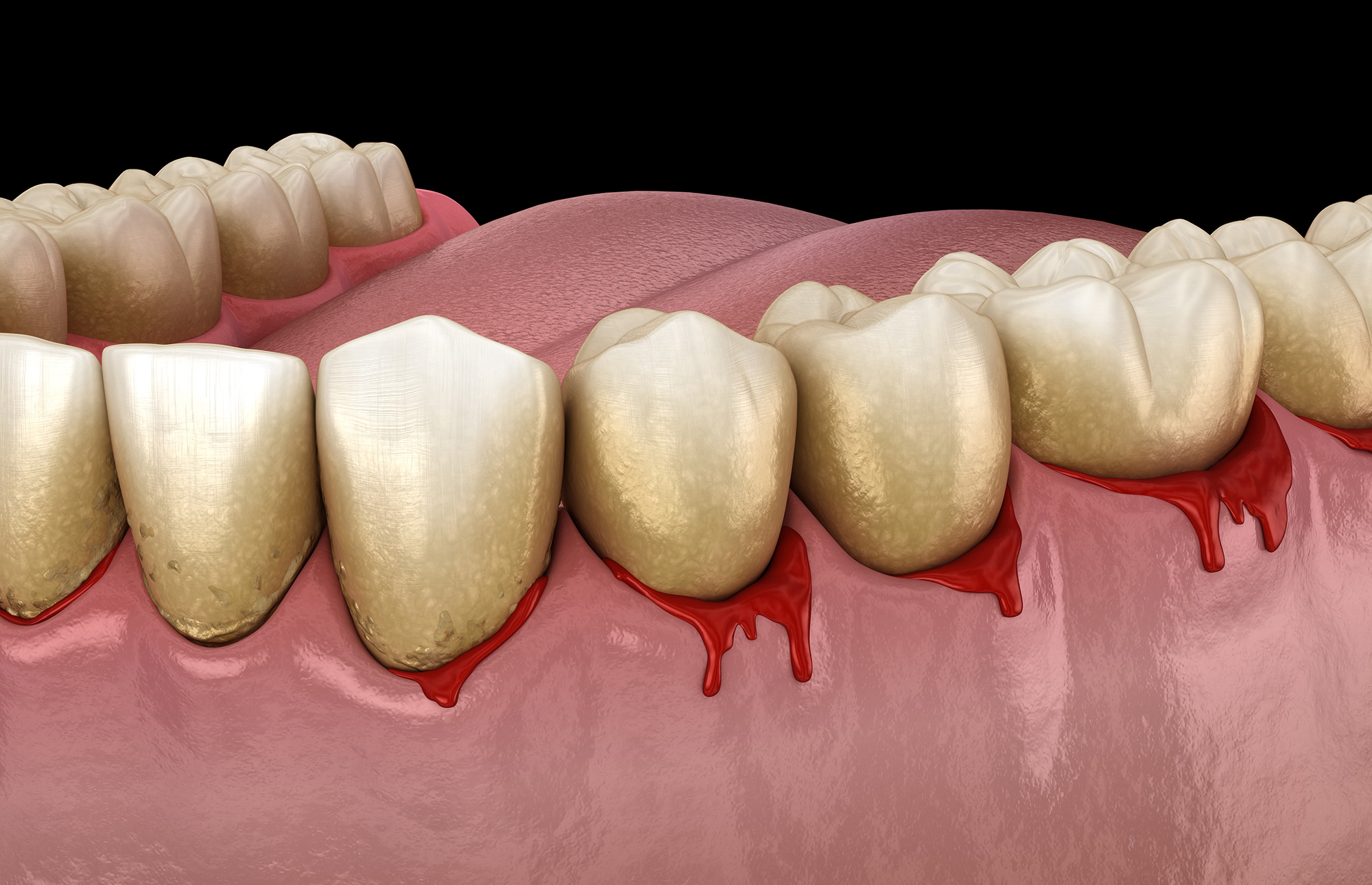Blödande tandkött är mer än bara ett mindre besvär; det är ett fönster in i din allmänna hälsa och ett potentiellt varningstecken på underliggande problem som inte bör ignoreras. I denna omfattande utforskning fördjupar vi oss i de otaliga orsakerna till varför tandkött kan blöda, med stöd av den senaste vetenskapliga forskningen. Från vardagliga vanor till systemiska hälsotillstånd är att förstå orsakerna till blödande tandkött det första steget mot förebyggande och optimal munhälsa.

De mångfacetterade orsakerna till blödande tandkött
Blödning från tandköttet är ett symptom, inte en sjukdom i sig, och det kan ha en mängd olika orsaker. Var och en av dessa faktorer bidrar till tillståndet på olika sätt, och att förstå dem är avgörande för effektiv behandling och förebyggande.
Dålig munhygien
Gingivit till parodontit
Biverkningar av medicinering
Vissa läkemedel, inklusive blodförtunnande medel, kan öka sannolikheten för blödande tandkött. Dessa läkemedel minskar blodets förmåga att koagulera, vilket kan leda till lättare blödning, även vid milda irritationer som tandborstning eller tandtråd.
Underliggande hälsotillstånd
Förebyggande och behandling: Vägen till friskare tandkött
Att förebygga och behandla blödande tandkött är viktigt för att upprätthålla inte bara munhälsan, utan även det allmänna välbefinnandet. Följande strategier kan avsevärt minska risken för blödande tandkött:
Att anta en rigorös munhygienrutin
Regelbundna tandkontroller
Hantering av läkemedel
Kontrollera underliggande förhållanden
Blödande tandkött är ett tecken på att din kropp kämpar mot infektion, inflammation eller effekterna av vissa mediciner. Genom att förstå de bakomliggande orsakerna och implementera förebyggande åtgärder kan du skydda ditt tandkött och din hälsa. Kom ihåg att friska tandkött är grunden för en hälsosam kropp, och att ta hand om din munhälsa är en investering i ditt allmänna välbefinnande.
Låt inte blödande tandkött gå okontrollerat. Omfamna resan mot en friskare mun och kropp idag.